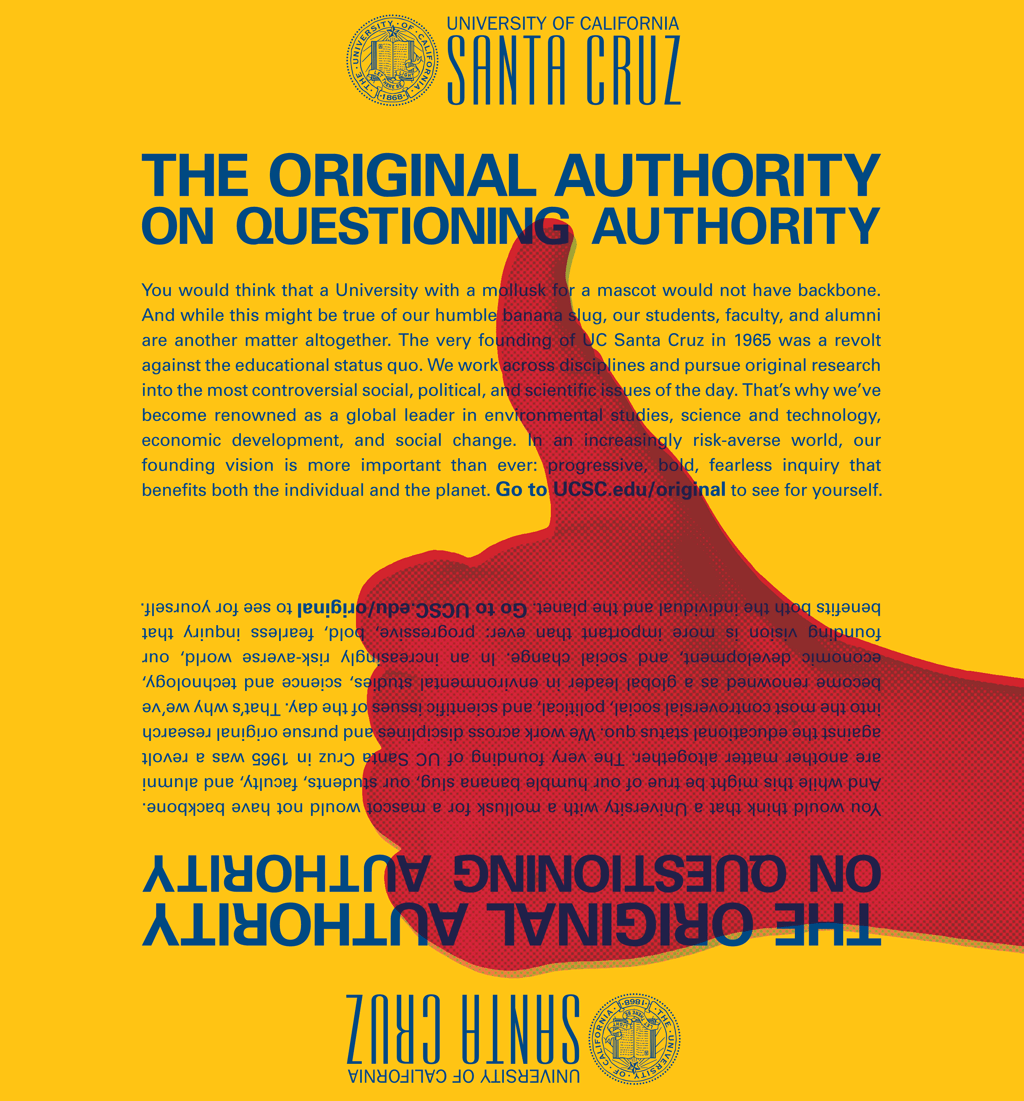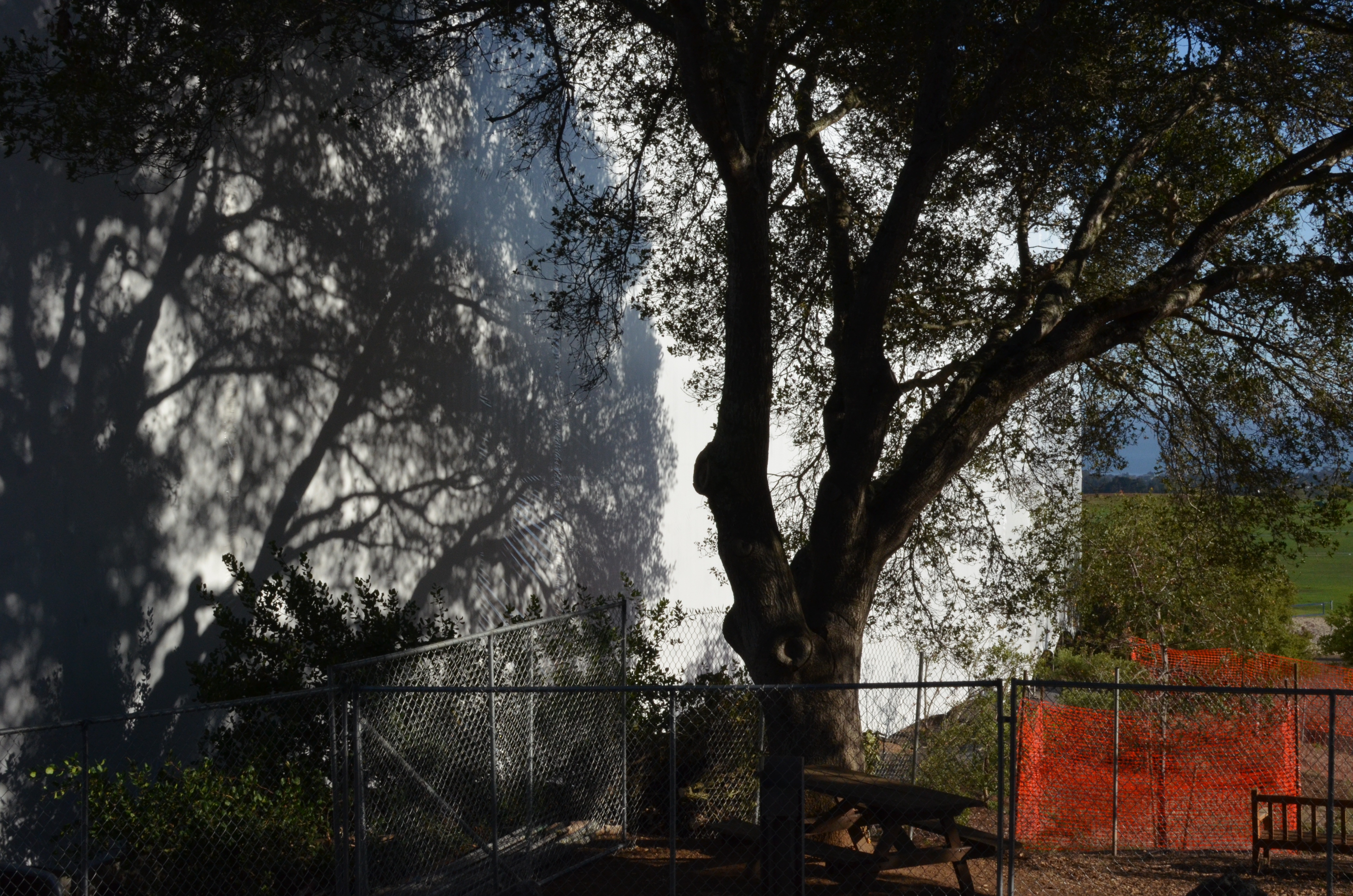According to a message sent today by the UCSC Chancellor’s office, UCSC is about to launch “a bold advertisement” that purports to “capture the essence of UCSC.” It is to appear today “in the first of four national publications.” The message continues:
This ad speaks to UCSC’s core identity as a place with an unshakable commitment to students and to the fearless, bold inquiry that propels pathbreaking research. Our students learn how to think, not what to think. We care about social justice and the health of our planet. These qualities define UCSC’s distinctive culture, and these ads are part of an overarching campus strategy to raise awareness and build our national profile in an era when fundraising is more important than ever. Check it out and let me know what you think.
It is a poorly designed poster. The use of yellow is to be expected for UC and the banana slug, as is blue for the lettering. But the red hand looks so strange. What is it trying to point to? A past anarchic spirit, now tamed and channeled, thumb up, towards research, fundraising, and economic, global success? Or is the red thumb a badly drawn mollusk? The text gives an idealized story about backbone, energy, originality. The poster invites the viewer to buy the notion this spirit is still at the core of the present institution, when the real message of such an ad is that the university is a business. In this case, a business with an attitude.
How much did this poster cost?


